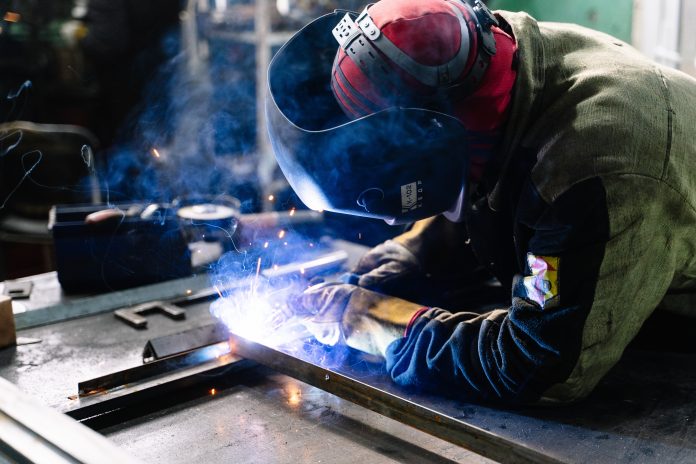Recently, someone pointed out the ecological harm posed by the overuse of highly processed leather products.
I immediately felt warm, and…righteous.
That bears explanation. I have a small business venture named “Blind Guy Welding.” I create whimsical metal sculptures, for fun and occasionally for profit.
My welding gloves, leather, are old. I was not always so sensitive to the ecological harm in replacing them frequently. But I keep them, you see, even though the left glove has a hole in the thumb, a hole about the diameter of a large Sharpie pen. When I pick up hot iron, I invariably burn my thumb. This typically happens a number of times in a day. While you might logically think this fellow is not bright, hear my reasoning.
The right glove is still in good repair. If I were to throw the pair away, and reach for new gloves (of which there are several pair waiting on a shelf,) then that right glove, perfectly functional, would be rubbish. Ergo, ecological waste and harm. Climate change. Melting glaciers.
Welding is typically carried out wearing shorts, Dawgs, and a t-shirt festooned with many burn holes. This again is to minimize the constant replacing, constant waste, of shop clothes. That efficiency may account for a degree of cooler temperatures. The Dawgs have holes burned through the soles from walking on molten metal. I respond by gluing on harder soles from a pair of sandals. Again, climate justice is upheld, as well as a unique definition of style. There are leather products that could protect me head to toe, and I own most of them, sturdy boots as well, but where is the adventure in that? It’s much more delightful to sit with grandchildren as they count scars and ask to hear the stories. I emerge heroic each time, and am counted as a warrior of eco-justice.
This is not a new attitude, developed in response to recent climate concerns. When I was a child, and the task de jour involved rolling up rusty barbed wire, we were given leather winter mitts to protect our hands, but we were told to wear them backwards, so as not to damage the critical frontal surface that dealt with the wear and tear of all other seasons. The actual concept of work gloves was foreign. Damaged hands would heal. Dirty hands would clean. Gloves needed to be discarded, replaced, with the attendant cost and waste. It wasn’t till adulthood that I realized that work gloves were a thing.
This was not the only childhood training in careful and efficient living that has impacted me for the last seventy years. Recently, on a “Special Victims Unit” television program, a villain was ordered out of the house wherein he had been holed up, and was told to “throw down his gun.” I winced. That did not jibe with how I was taught to treat guns. Could the villain not lean over, and lean the weapon gently against a wall? Or bend over carefully, and lay it on a carpeted area? Otherwise, the mechanism might be damaged, varnish scratched, or dirt enter the barrel. Gunsights might well be knocked out of kilter. Rifles were common and comfortable in our childhood home, but respect was taught and enforced. The user understood where a gun could be pointed, and where not, when it could be loaded, and when not. Guns were never to be dropped, even if ordered to do so.
My father died twenty-five years ago, before the church spoke about creation care, climate change, carbon footprints and recycling. But he taught and lived lessons of respect and appreciation for the simpler, the humbler things that surrounded him. Farm auctions were times to scoop up pieces that no one else could make work, and turn them into a challenge. Creating or repairing machinery in his shop was always done using the piles of rusted metal that was piled into a place of importance by his shop. Newly purchased iron was as rare as new work gloves. Somehow, that translates for me into a lesson that all aspects of life can become holy learning. Even, perhaps, a burned thumb.


